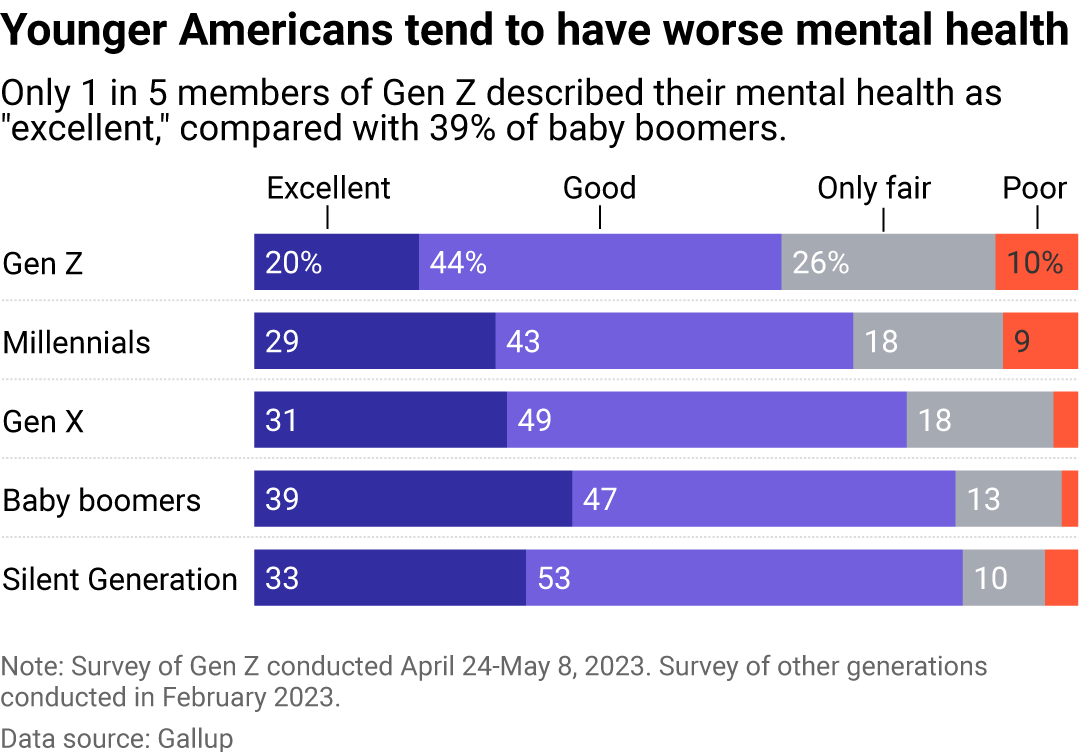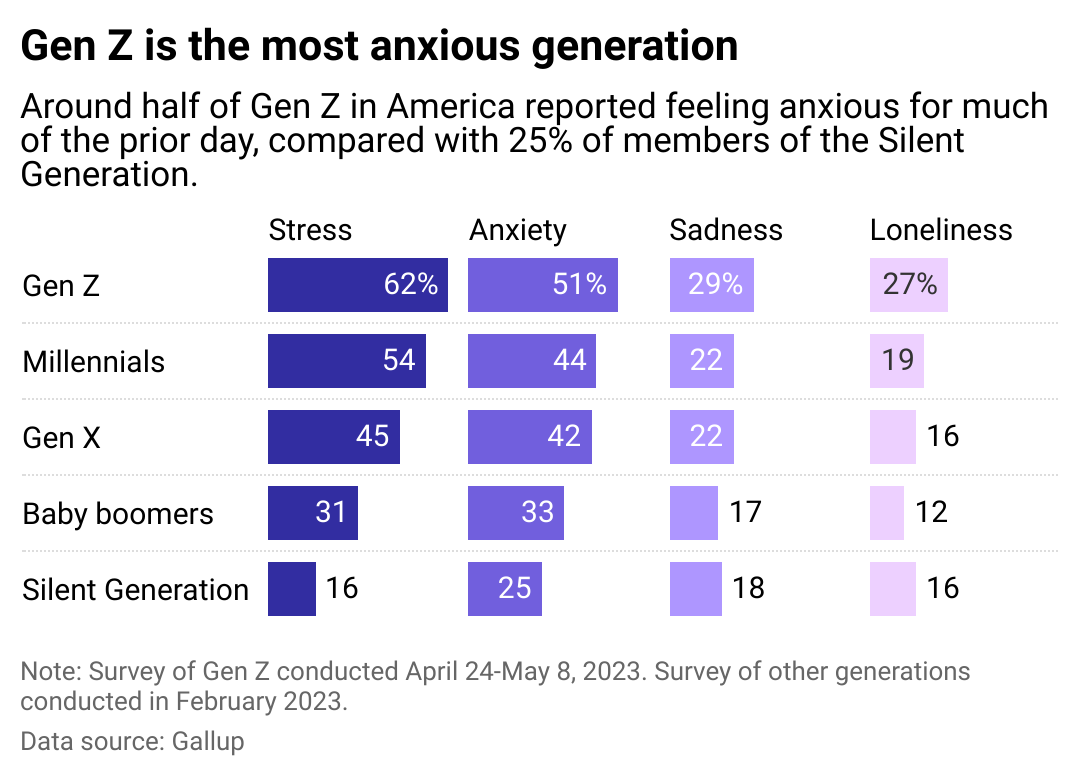Young Americans are less optimistic these days, but none more so than Generation Z.
Less than half (47%) of Gen Zers said they were thriving, according to a survey conducted by Gallup and the Walton Family Foundation. The survey asked Americans to rate their current and future lives out of 10, with people classifying as "thriving" if they both rate their current lives as at least a 7 and their future lives as at least an 8. By this definition, this puts them behind every other generation surveyed, save for the Silent Generation, who are aged 71 and over.
Millennials were much more optimistic. Some 59% of this generation, born between 1981 and 1996, said they were thriving. They were also more optimistic at the same age. Surveys taken in 2009 and 2014, back when millennials were the same age as Gen Zers are today, found that 60% of 18- to 26-year-olds were considered thriving. This suggests Gen Zers' state of well-being is not just a result of their youth but rather that their generation is truly different. While not a measure of mental health, the survey results suggest mental well-being might impact how optimistic Gen Z is about their lives and the future. More than 36% of Gen Z rate their mental health as "poor" or "only fair," more than any other generation.
This uneasiness isn't unfounded. With increasing reports of violence, sexual harassment and assaults, and environmental concerns, it's an unusual—and worrisome—climate to come of age. Political polarization has been rising—a trend that has been difficult to ignore for people who consume social media in large quantities—and most Gen Zers, born between 1997 and 2012, had their schooling disrupted by the COVID-19 pandemic. Many did not get the opportunity to graduate in person, and some graduated into an unfriendly job market.
For that reason, Wysa analyzed data from the Gallup-Walton Family Foundation report to better understand how well-being varies by generation. Data on Gen Z is from a survey conducted in the United States from April 24 to May 8, 2023, while data on older generations is from a survey conducted in February 2023.

Merely 1 in 5 Gen Zers described their mental health as "excellent," compared with roughly 2 in 5 (39%) baby boomers. However, older generations were much more likely to report good mental health even when they were younger. In a 2013 Gallup poll, more than half (52%) of millennials—then aged 18 to 26—described their mental health as "excellent."
Mental health can have a major impact on academic performance: Of the Gen Z students who said they have excellent mental health, more than half (53%) also report "excellent grades" in school, and 2 in 5 (41%) said they hadn't missed school in the past month. Results were less positive for Gen Z students who said their mental health is fair or poor. Only 1 in 4 of those students reported getting "excellent grades," and 65% missed school in the past month.
Some Gen Zers are doing better with their mental health than others. Those enrolled in K-12 education, as well as those with college degrees, are most likely to say they are thriving. Meanwhile, zoomers who are either in college or do not have a college degree are least likely to report that they are thriving.

The Gallup report also provides specific information about how Americans from different generations feel emotionally. Notably, more than 3 in 5 (62%) Gen Zers said they felt stress for much of the prior day, and half felt anxiety. Older generations were much less likely to say that they felt such emotions. For instance, only 33% of baby boomers said they felt anxiety for much of the day before.
These numbers offer a slight to past research, which found a "U-shaped" pattern when it comes to happiness. In 2017, the World Economic Forum noted that people tend to be happy as teenagers and young adults, become less content as they grow into middle age, and then become happier again starting at around age 55.
Young Americans are far from despondent. Despite all of their mental health challenges, Gen Zers remain optimistic. At least 4 in 5 (82%) said they will achieve their goals, while 3 in 4 (76%) said they have a great future ahead of them.
Interpreting these numbers requires caution. Gen Zers may be distinct in that they are genuinely experiencing more mental health problems than generations before. But it is also possible that they simply talk about mental health differently than young people did in the past. Or, more optimistically, they may be better attuned to their own feelings.
Story editing by Shannon Luders-Manuel. Copy editing by Paris Close. Photo selection by Clarese Moller.
This story originally appeared on Wysa and was produced and distributed in partnership with Stacker Studio.